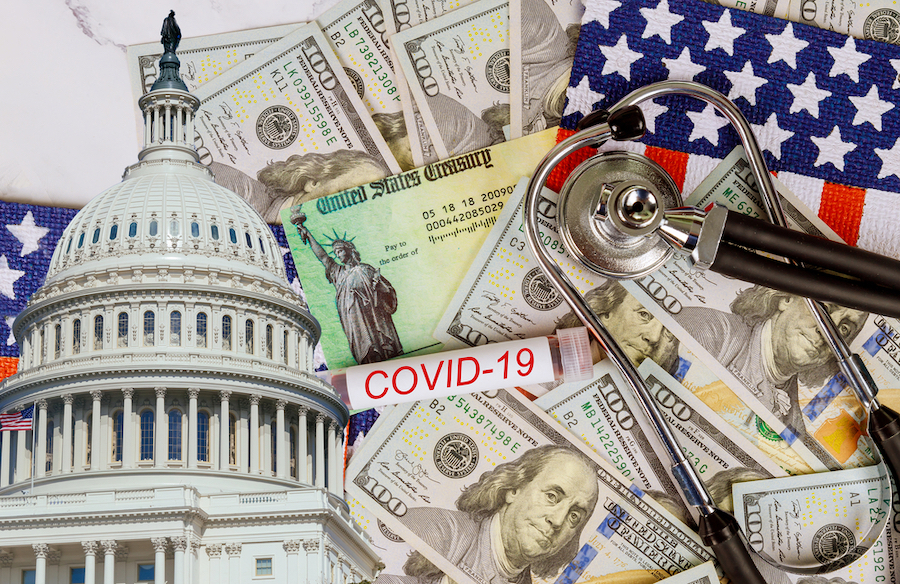Has your small business taken advantage of one or more of the COVID-19 relief programs authorized by the American Rescue Plan for 2021? If so, you need to be aware of your potential tax liability for federal and state taxes. 2020 and 2021 were not typical tax years thanks to the trillions pumped into the economy by a government trying to protect the country from an emergency they had not dealt with in over 100 years. The result was a raft of new tax rules that were rushed into place and amended as time went by. Taxes, particularly 2021 taxes, will impact a small business’s profitability or even sustainability. As a result, it is more important than ever to get assistance negotiating the benefits and liabilities of any assistance programs you may have participated in or even qualified for.
Common Assistance Programs Under the American Rescue Plan
The original intent of the American Rescue Plan was to find a way to keep workers employed even though employers had shut down because of the pandemic. Keep in mind that not all relief plans are compatible. For example, if you qualified for multiple programs, which by themselves may be tax-exempt or offer tax credits, but combined created duplicate benefits, there may be issues. Also, state tax law may not conform with federal rules, so you must understand how the state treats these programs. Here is a shortlist of what we mean:
- Paycheck Protection Plan (PPP). Forgiven PPP loans were meant to be tax-exempt by the IRS, even if they were used to pay deductible tax expenses like the employer’s share of FICA. California, however, limits the benefits of a PPP to privately held companies that suffered at least a 25% drop in gross receipts.
- Economic Injury Disaster Loans (EIDL). These low-interest, favorable terms loans issued by the Small Business Administration are not considered income by either the IRS or the state. They are what they are. Business loans that will be repaid.
- State and Federal COVID Grants. Generally, grants are considered income. However, there are two significant exceptions, the Shuttered Venue Operators Grant and the Restaurant Revitalization Fund. Money received through these grants is not considered income by the IRS. However, the state may take a different view about these two grants and any state COVID grant programs. Check 1099s received for grant funds to determine if they are taxable or not.
- Employee Retention Act (ERC). This tax credit has been confusing for business owners through a couple of iterations. The current version allows you to have both a PPC and ERC with limitations. The ERC tax credit, which is up to $7000 per worker per quarter retained, is allowed but only for that portion of wages that were not paid by the PPC loan. The IRS published Notice 2021-49 to provide further guidance. We encourage you to look this over to understand why you need assistance from someone who speaks your language.
What Does This Mean For Your Business?
There are more programs, and if you qualified but did not claim the benefit in 2020, you may be able to amend your 2020 return to take advantage of the relief today. If you want to simplify this tax difficulty, contact us at ASCEND Business Advisory. We have the experience and expertise to assist you in your tax preparation, planning, and strategy. Call us at 888-297-3321.

